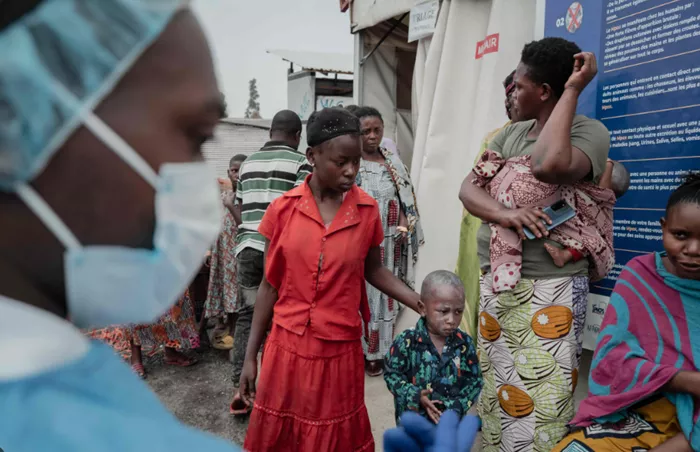Amid the rapid escalation of mpox, formerly known as monkeypox, across Africa, the World Health Organization (WHO) issued a global health emergency in mid-August. This declaration underscores the gravity of the situation, as the continent has reported over 18,000 cases this year alone, with more than 600 fatalities.
Mpox is characterized by fever, swollen lymph nodes, and a distinct rash that evolves into pus-filled blisters. This marks the WHO’s second declaration of a health emergency for mpox, following a similar move during the 2022 outbreak. However, the current situation presents new challenges.
While the 2022 outbreak was primarily driven by sexual transmission among men, the current surge in cases shows a troubling rise in infections among children and women, accompanied by a higher mortality rate. This shift in the demographic spread highlights the urgent need for a coordinated international effort to contain the outbreak.
The current crisis is being driven by a different clade, or genetic lineage, of the mpox virus than the one responsible for the 2022 outbreak. Additionally, a newly emerged strain of the virus, which has diverged from the main lineage through mutations, has been detected in Sweden and Thailand, raising further concerns. Fortunately, this new variant has not yet been identified in Japan, where over 200 mpox cases have been confirmed since 2022.
Although mpox is unlikely to become a global pandemic on the scale of COVID-19, given that it is not primarily transmitted through respiratory droplets, the new variant poses a significant threat and could easily spread internationally. Japan’s healthcare system is prepared to respond to this threat, with vaccines and treatment options readily available. However, maintaining strict vigilance, especially at the borders, is crucial to prevent the virus from entering the country.
In Africa, vaccines are the cornerstone of efforts to curb the outbreak. The WHO recently urged nations experiencing outbreaks to develop and implement vaccination plans. However, the ongoing negotiations over a new WHO treaty to enhance global preparedness for future pandemics have stalled, as the divide between developed and developing nations remains unresolved.
The support and cooperation of developed countries, particularly those with vaccine production capabilities, are vital for controlling the mpox outbreak. Last weekend, the WHO announced it had received emergency use applications from two manufacturers of a smallpox vaccine, proven effective in preventing mpox. One of these manufacturers is based in Japan.
Though smallpox was eradicated in 1980, Japan has maintained a stockpile of smallpox vaccines produced by KM Biologics, a Meiji Group company in Kumamoto, as a precaution against bioterrorism. The effectiveness of this vaccine against mpox was confirmed two years ago.
Keizo Takemi, Japan’s Minister of Health, Labor, and Welfare, revealed that the Democratic Republic of the Congo, the epicenter of the current outbreak, has requested vaccine supplies from Japan. By leveraging its domestic vaccine production, Japan has the opportunity to make a significant international contribution to the fight against mpox, helping to mitigate the health threat posed by this outbreak.


